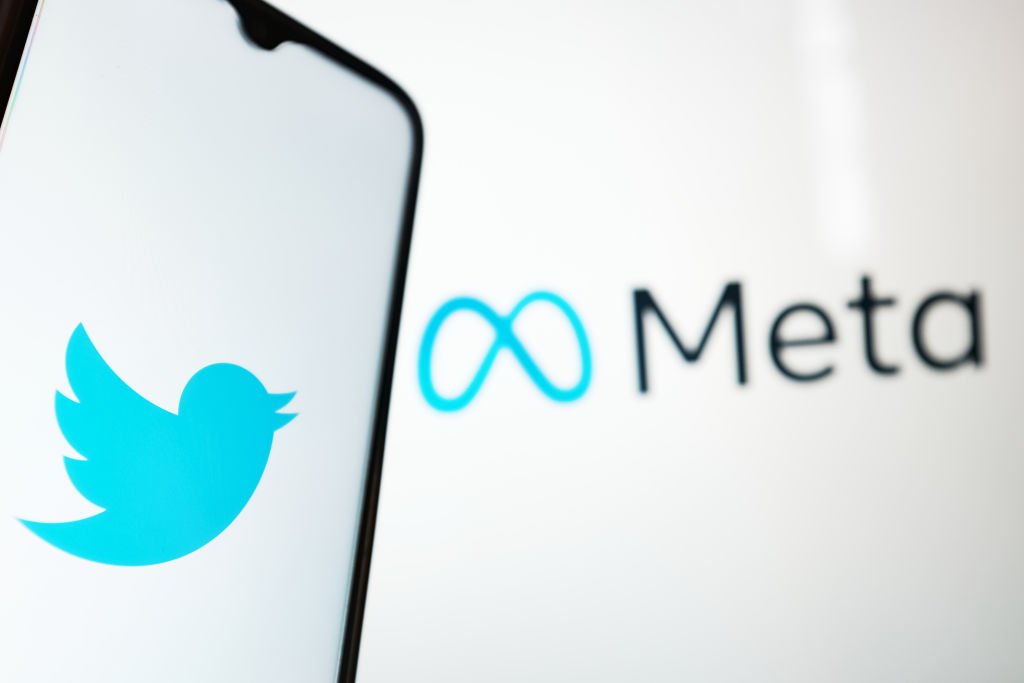After announcing 10,000 job cuts in March, Facebook’s parent company, Meta Platforms, completed the last batch in its three-part termination scheme. The tech giant targeted its business division, focusing on marketing, corporate communications, program management, and enterprise engineering. The news was great for Meta stock as shares rose 1% and added to its year-to-date gain of 99%. But the overall company appears to be lacking momentum, with its foray into the metaverse slamming into a physical brick wall and a paucity of innovative tools and features. This could be the opening that competitors have been waiting for after all these years. With Florida Gov. Ron DeSantis making a world-first announcement on Meta’s most significant rival platform, it seems that Twitter is only too ready to take advantage of the situation.
A DeSaster?
DeSantis officially announced his 2024 presidential candidacy during an hour-long Twitter Spaces session co-hosted by Elon Musk and tech entrepreneur David Sacks. But the governor’s announcement took a back seat to the black eye that Twitter endured after numerous technical glitches and the mobile app crashing multiple times as approximately 1.3 million users tuned in to listen to the campaign launch.
Former President Donald Trump, Democrats, and pro-Trump figures pounced on the botched rollout, with a few hashtags trending, including “#FailureToLaunch” and “#DeSaster.” Steve Bannon, a former top Trump aide, called it a “historic screw up.” Ryan Fournier, the founder of Students for Trump, described the announcement as “robotic and awkward without needing a camera.” Donald Trump Jr. tweeted, “DeSantis is making JEB! look high energy right now.” Trump took to Truth Social to call his opponent’s campaign launch “fatal” and share the latest 2024 National Republican Primary polling data that shows the real estate billionaire mogul with 69% support, followed by DeSantis (13%) and former Vice President Mike Pence (6%).

(Photo illustration by Nikolas Kokovlis/NurPhoto via Getty Images)
Despite the technical mishaps, something that Musk even acknowledged, this was a huge day for the Twitter brand, proving that the website continues to strive for something fresh as opposed to simple 280-character tweets. It was comparable to social media’s influence in 2008, with every candidate launching a Facebook page or CNN partnering with YouTube to host presidential debates.
Liberty Nation‘s Mark Angelides suggested before DeSantis’ presidential declaration that this “perhaps sets the playing field for how candidates will manage their campaigns in the future,” adding that it could put legacy media on notice. Angelides further opined: “Team DeSantis has demonstrated that it knows how to use Twitter, and being a 24-hour platform would allow his campaign to act and react far more nimbly than candidates who rely on the evening shows.”
Add Tucker Carlson to the mix, and Twitter could transform into a powerful content platform.
Meta Versus Twitter: Tale of the Tape
Before billionaire CEO Elon Musk took over Twitter, it was a boring brand. Intense content moderation, censorship woes, and a stale platform had been some of the troubles gripping the social media outlet. The company was also losing money. Since Musk has taken over the website, it has seen a breath of fresh air, be it long-form content or free speech emphasis. Sure, there are plenty of bugs that need to be remedied, but it is a case of night and day compared to what it was a year ago.
Is the Tesla Motors CEO crafting a story of Twitter triumphing over Facebook? Not yet. The Meta property still boasts more than one billion users compared to Twitter’s roughly 500 million. It is also essentially the go-to source for advertisers, thanks to its size and global availability.
 But as the young whippersnappers say, the times they are a-changin’.
But as the young whippersnappers say, the times they are a-changin’.
With Facebook witnessing an invasion of the so-called social seniors, millennials are being turned off and retreating to Twitter, where most say they check the social network at least once a day. In addition, Twitter has typically been the venue for celebrities, members of the press, and politicians to engage with the public. Even for the marketing realm, Twitter is not oversaturated like Facebook, meaning greater and higher quality reach. Despite the negative media attention Twitter has received in recent months, it has not suffered from significant privacy scandals like Meta.
Could politics be the subject that takes Twitter to the upper echelon of the social media industry? Evidently, this topic seems to be the primary one that the Twitterverse regularly and vociferously engages in any time a user logs in to the digital portal.
Meta Boring
Meta’s Facebook is still the same social network that is moderating and censoring content, fearful of users sharing information that might contradict the state-approved narrative. Twitter is now a digital public town square where ideas are debated, shared, and fact-checked. While Musk has hinted that Twitter’s finances are improving, perhaps the 2024 presidential election will be the driving force behind the website’s success – and maybe this is what Musk is banking on in the coming months. If a tsunami of people is flooding Twitter to talk about a policy announcement or an election debate, this will bolster user totals and garner more interest from advertisers. Indeed, the refrain appears to be that Facebook is selling out your privacy, and Twitter is selling free speech.



